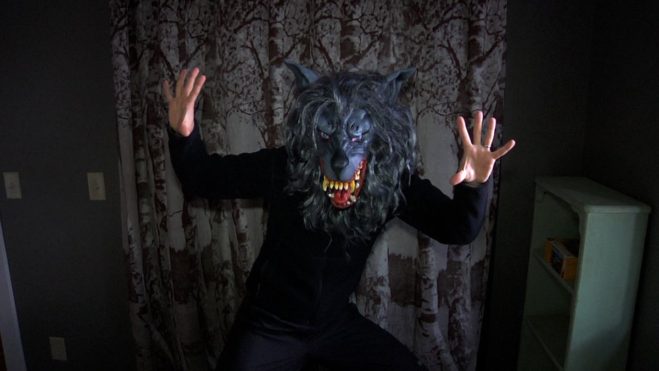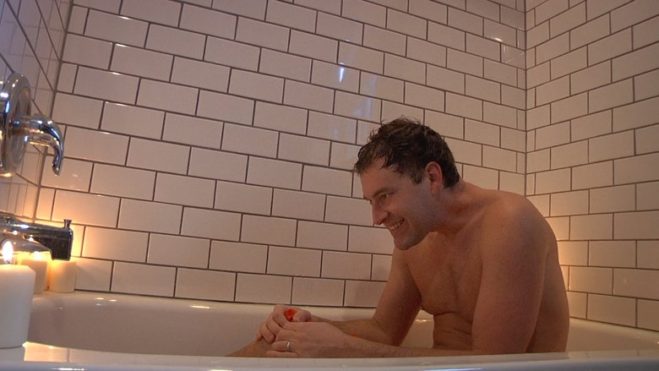
I suppose one clear hallmark of the horror genre has always ben it’s ability to do a lot with a little. Some of the genres most highly revered films were made by independently-minded filmmakers with not much in the way of budget, but with plenty in the way of their desire to shock and excite audiences. And it’s something that’s still been remarkable of the genre into the 21st century, as a movie like Paranormal Activity could be made for a mere $15,000, and somehow spin itself into a blockbuster franchise generating hundreds of millions of dollars. Clearly, a film like Creep didn’t quite have the legs to turn itself into a major cash cow, since I don’t know if I’d even heard of it prior to volunteering to write about it, but it’s hard to think of a better example of a film making the most of its super-micro budget.
Like most of today’s smaller budget horror movies, Creep takes the found-footage approach, though I appreciate the fact that the found footage aspect of the film is actually tied into the plot. You see, the movie is told from the perspective of Aaron (played by Patrick Brice, Creep‘s director), who’s been hired off of a craigslist ad to be a videographer for Josef (Mark Duplass), who claims to be terminally ill. He wants to document himself for his unborn son, and thus has Aaron follow him around, though while doing so it seems pretty clear that despite his affability (and his liberal use of the word “buddy”), there are clearly a few screws lose with Josef, and that everything he’s been telling Aaron about himself might not be what it seems.
I feel like the casting of Mark Duplass here was probably more based on practicality, since I can’t think of many actors that could carry an entire film with their charisma alone, but would also be willing to make a film for literally nothing. But I still think it’s pretty darn effective, since he’s an actor who you’d just want to be your buddy, though as the film progresses and Josef becomes more and more unwound, you definitely have to come to terms with the fact that no, you would not want to have this guy as your buddy. So I can only assume that Duplass’ effectiveness as a horror villain in Creep is what landed him in whatever the hell The Lazarus Effect was, though I’m just guessing he’s playing glasses-ed Mark Duplass in that movie. You know, the kind of Mark Duplass where he’s just playing a regular guy.
But in Creep, it’s fun to see the way Mark Duplass can turn his regular guy-ness just a few notches to the left, and it in turn becomes more and more unsettling to be around the guy. Even at a brief 74 minutes, I still applaud the movie’s ability to stretch out just how long we’re willing to give this guy a fair shot, since even though he does a lot of weird stuff, you can’t help but feel a little bit of sympathy for him. Especially in the latter part of the movie were Josef is essentially stalking Aaron, since even despite his creepy ways of showing it, he kind of just seems like a sadsack who wants a friend.
I’m kind of having a hard time really digging deep in to this movie, since a lot of its charms remain in its simplicity and the way it slowly reveals information (aka spoilers). As I’ve said, it’s pretty much based around one performance, there are basically two or three sets used in total, and as far as I can tell, its director was the entire crew as well as it’s co-star. Which of course makes it a movie that’s easy to have a bunch of respect for, even if it’s hard for it to really transcend its micro-budget aspirations. But hey, in what other genre can you really get away with that?
Seriously, what a creep.


